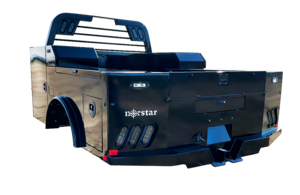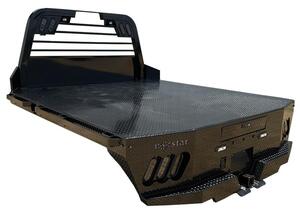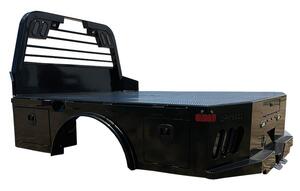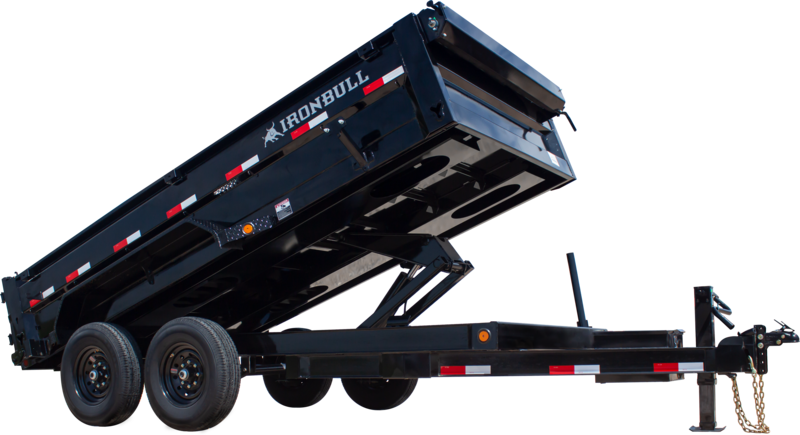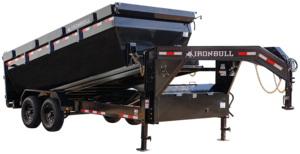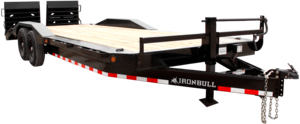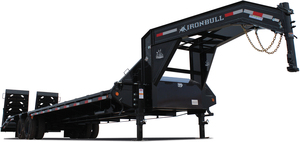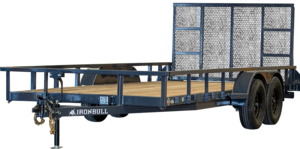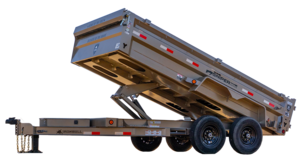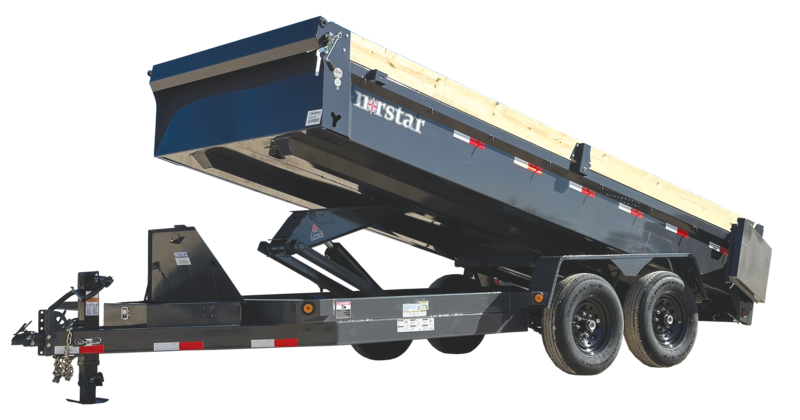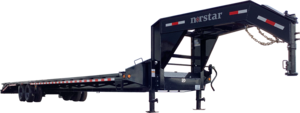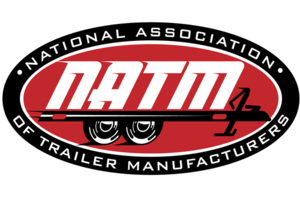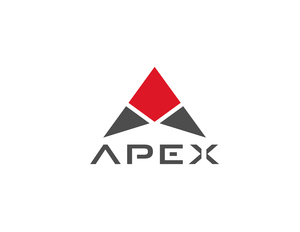Aluminum vs. Steel Flatbed: What's the Difference?
If you are eyeing a new flatbed for your truck, choosing between an aluminum flatbed and a steel flatbed may be tricky.
While both materials have their merits, picking what's best can be difficult, as both have advantages and a few setbacks.
This guide tackles the advantages and disadvantages of aluminum vs. steel flatbed so you can make an informed choice that fits your needs and budget.
What is a Flatbed Truck?
Before diving into the pros and cons of aluminum vs. steel flatbeds, let's first tackle what flatbeds are for.
A flatbed truck is a versatile vehicle for carrying many loads. It's essentially a truck with a flat, open bed that allows for easy loading and unloading of cargo.
Flatbed trucks come in various sizes and configurations to suit different needs, from small pickups to large commercial vehicles.
They're commonly used in construction, agriculture, and logistics industries, where heavy and bulky loads must be transported. Flatbed trucks can also be customized to fit specific requirements, such as adding toolboxes, racks, or other accessories to optimize functionality.
Aluminum Flatbeds
Aluminum flatbeds are made of aluminum, offering several advantages over their steel counterparts. Its benefits make them popular as a more cost-effective, long-lasting flatbed solution.

Advantages of Aluminum Flatbeds
Aluminum beds for trucks are becoming increasingly popular in the trucking industry due to their lightweight, corrosion-resistant, and fuel-efficient properties, making them ideal for hauling lighter loads while maintaining fuel economy.
Lightweight
Aluminum is a lightweight metal, meaning a flatbed can weigh up to 50% less than a comparable steel flatbed.
This reduced weight can translate into better fuel efficiency and reduced wear and tear on your truck. The lighter weight also makes loading and unloading cargo easier, saving time and effort.
Corrosion-resistant
Aluminum does not rust like steel. This makes aluminum flatbeds withstand harsh weather conditions and exposure to corrosive materials without deteriorating.
If you live in a coastal area, having an aluminum flatbed is a great choice, as saltwater can be particularly damaging to steel flatbeds.
Fuel-efficient
Aluminum flatbeds are also fuel-efficient, saving you money in the long run. The lighter weight of an aluminum flatbed gives your truck ease in transporting your cargo, which can result in improved gas mileage and lower fuel costs.
Disadvantages of Aluminum Flatbeds
While an aluminum pickup flatbed has many rewards, they are also more expensive than steel flatbeds and less durable, requiring special equipment for repairs.
Additionally, there may be better options than aluminum flatbeds for heavy-duty hauling applications.
Expensive
One of the primary disadvantages of aluminum flatbeds is their higher cost than steel flatbeds. Aluminum is a more expensive material than steel, meaning aluminum flatbeds can cost up to 50% more than comparable steel flatbeds.
While the initial cost may be higher, aluminum flatbeds can offer long-term cost savings through their fuel efficiency and corrosion-resistant properties.
Lesser durability
Aluminum flatbeds can be more susceptible to dents and other forms of damage. It can be a concern for businesses that need to transport heavy or sharp-edged cargo, as the flatbed may not withstand the weight or pressure.
Requires special equipment for repairs
Aluminum welding requires specialized training and equipment. Thus, it can be more difficult and expensive to find than steel welding equipment.
You may have to deal with longer repair times and higher repair costs, mainly if you live in an area with limited access to aluminum welding equipment.
Best Uses for Aluminum Flatbeds
You can consider having the best aluminum flatbed if you intend to use it for the following:
Hauling light to medium-weight cargo. Ideal for construction materials, equipment, and vehicles.
Food and beverage transport. Popular choice for food and beverage transport, particularly in the catering and restaurant industries that take care of perishable items.
Agricultural transport. Commonly used in the agricultural industry for transporting hay, livestock, and farm equipment.
Residential and recreational use. Great choice for residential and recreational use, such as hauling boats, ATVs, and other recreational vehicles.
Steel Flatbeds
Steel flatbeds are made of steel material that offers exceptional durability, strength, and ruggedness compared to aluminum counterparts.

Advantages of Steel Flatbeds
Stainless steel flatbeds are heavier and less fuel-efficient than aluminum flatbeds.
Still, their ability to withstand heavy loads and harsh conditions makes them popular for heavy-duty applications, such as construction and hauling.
Strong and durable
Steel can better withstand the weight and pressure of heavy cargo. They are also more resistant to dents and other damage forms, making them a better choice for businesses that need a heavy-duty flatbed for transporting heavy or sharp-edged cargo.
Cost-effective
Steel is a more affordable material, meaning steel flatbeds can cost up to 50% less than comparable aluminum flatbeds.
This lower cost can make steel flatbeds a more accessible option for small businesses or individuals who need a flatbed but have a limited budget.
Easy to repair
Steel flatbeds are also generally easier to repair. Steel welding is a standard and widely available repair method, so finding someone to fix your steel flatbed can be more accessible and affordable.
A steel flatbed is also a more forgiving material than aluminum, making it easier to create repairs without damaging the material.
Disadvantages of Steel Flatbeds
While steel flatbeds are solid and durable, they are also heavy, prone to rust and corrosion, and can have reduced fuel efficiency.
Additionally, steel flatbeds may require more frequent maintenance and repairs than their aluminum counterparts.
Heavy
Steel flatbeds can add significant weight to a vehicle, resulting in reduced fuel efficiency, increased wear and tear on the vehicle's suspension and tires, and decreased maneuverability.
Prone to rust and corrosion
Steel is a ferrous metal prone to rust when exposed to moisture and oxygen. Over time, rust can weaken the structure of a steel flatbed and make it more susceptible to damage or failure.
While regular maintenance and protective coatings can help prevent rust and corrosion, these measures require time and resources.
Reduced fuel efficiency
Because steel is a heavier material than aluminum, a vehicle with a steel flatbed will require more fuel to achieve the same level of performance as a vehicle with an aluminum flatbed.
This increased fuel consumption can increase over time, resulting in higher operating costs for businesses that use steel flatbeds.
Best Uses for Steel Flatbeds
Know how to maximize the potential of steel flatbeds with the following uses:
Heavy-duty hauling. Steel flatbeds are often the preferred choice for businesses requiring a flatbed with a high weight capacity.
Construction and industrial applications. Well-suited for carrying heavy construction materials, such as steel beams or concrete blocks.
Off-road use. Best for navigating rough terrain and carrying heavy loads over uneven surfaces.
Longevity and resale value. They have a longer lifespan than aluminum flatbeds and are less prone to damage from everyday wear and tear.
Aluminum vs. Steel Flatbeds Comparison
When comparing aluminum and steel flatbeds, several factors should be considered to determine which type best suits the intended use and budget.
Cost
Aluminum flatbeds for pickups are generally more expensive than steel flatbeds due to the higher cost of raw materials and manufacturing processes. However, aluminum flatbeds can provide long-term cost savings through increased fuel efficiency and reduced maintenance costs.
Weight
Aluminum flatbeds are significantly lighter than steel flatbeds, typically weighing about 50% less. This makes aluminum flatbeds ideal for businesses or individuals requiring a higher payload capacity or maximizing fuel efficiency.
Strength
Steel flatbeds are generally more robust and more durable than aluminum flatbeds. Steel flatbeds can withstand heavy loads and are less prone to damage from everyday wear and tear, making them ideal for heavy-duty hauling and industrial use.
Maintenance
Aluminum flatbeds require less maintenance than steel flatbeds due to their corrosion-resistant properties. However, aluminum flatbeds can be more challenging to repair in the event of damage and may require specialized equipment and skills.
Fuel efficiency
Aluminum flatbeds are more fuel-efficient than steel flatbeds due to their lighter weight. This gives you significant cost savings over the vehicle's lifetime, making aluminum flatbeds a popular choice for businesses or individuals prioritizing fuel efficiency.
Customization
Both aluminum and steel flatbeds offer a range of customization options, such as toolboxes, tie-down points, and crane mounts. However, aluminum flatbeds are typically easier to customize due to the material's lighter weight and greater flexibility.
Environmental impact
Aluminum flatbeds are more environmentally friendly than steel flatbeds due to their lower weight, which reduces fuel consumption and carbon emissions.
Also, aluminum is highly recyclable, making aluminum flatbeds a sustainable choice for businesses or individuals who prioritize environmental responsibility.
How to Choose the Most Suitable Flatbed
Selecting the right flatbed is crucial to maximizing productivity, minimizing downtime, and ensuring your cargo's safe and secure transportation.
Factors on How to Pick the Right Flatbed
These pointers help you carefully evaluate and select a flatbed that meets your operation's needs.
Payload capacity
A steel flatbed with a higher weight capacity may be more appropriate if you frequently transport heavy loads. However, an aluminum flatbed may be a better choice if you need to maximize payload capacity and fuel efficiency.
Frequency of use
A durable steel flatbed may be more appropriate if you use the flatbed frequently or for heavy-duty hauling. However, if you only need to use the flatbed occasionally or for lighter loads, an aluminum flatbed is more cost-effective.
Road conditions
A steel flatbed may be better equipped to handle the conditions during frequent travel on rough or unpaved roads.
On the other hand, an aluminum flatbed may provide better fuel efficiency and a smoother ride if you primarily drive on paved roads or highways.
Budget
While aluminum flatbeds may have a higher upfront cost, they can provide long-term cost savings through increased fuel efficiency and reduced maintenance costs.
Are you ready to build your flatbed? Norstar Company is prepared to help you find the perfect flatbed for your needs. Contact us today to get started.
Aluminum vs Steel Flatbeds: What to Choose?
When deciding between aluminum and steel flatbeds, weighing the benefits and drawbacks of each material and considering these factors is essential.
Intended use
A durable steel flatbed may be more appropriate for frequently transporting heavy loads or operating in harsh conditions.
However, an aluminum flatbed may be a better choice if you prioritize fuel efficiency and plan to use the flatbed for lighter loads.
Cost
The upfront cost of an aluminum flatbed is typically higher than a steel flatbed, but long-term savings may be achieved through increased fuel efficiency and reduced maintenance costs.
Weight
Aluminum flatbeds are significantly lighter than steel flatbeds, which can result in increased fuel efficiency and payload capacity. However, a steel flatbed may be more appropriate if your intended use requires a higher weight capacity.
Durability
Steel flatbeds are known for their strength and durability, making them a better choice for heavy-duty or harsh environments. Meanwhile, aluminum flatbeds are also durable and benefit from being corrosion-resistant.
Maintenance requirements
Steel flatbeds may require more frequent maintenance due to their tendency to rust and corrode, while aluminum flatbeds require less maintenance due to their corrosion-resistant properties.
Customization options
Both aluminum and steel flatbeds can be customized to meet specific needs and preferences, such as bed length, storage options, and tie-down points.
Do you need further familiarity with the difference between the two? Norstar Company can help select the flatbed material that best suits their needs and provides the most excellent value over the long term. Contact us today to get started with your custom flatbed.
Let Us Help You Decide
Choosing between aluminum and steel flatbeds depends on your specific needs and budget.
While aluminum is lighter and more fuel-efficient, steel is more robust and durable, making it a popular choice for heavy-duty applications.
The cost is also a factor to consider, with aluminum flatbeds generally being more expensive but potentially providing long-term savings on fuel costs.
If you need a flatbed for your truck, consider getting a customized one from Norstar Company, one of the leading flatbed manufacturers in Texas. We offer various options, including aluminum and steel flatbeds, to meet your needs.
At Norstar Company, we use only the highest-quality materials and advanced manufacturing techniques to ensure that your flatbed is built to last.
Contact us today to build a quote or learn more about our manufacturing solutions!




